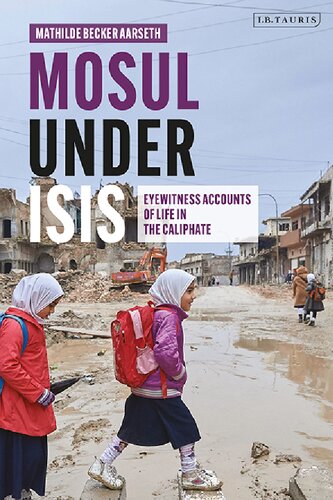

Most ebook files are in PDF format, so you can easily read them using various software such as Foxit Reader or directly on the Google Chrome browser.
Some ebook files are released by publishers in other formats such as .awz, .mobi, .epub, .fb2, etc. You may need to install specific software to read these formats on mobile/PC, such as Calibre.
Please read the tutorial at this link: https://ebookbell.com/faq
We offer FREE conversion to the popular formats you request; however, this may take some time. Therefore, right after payment, please email us, and we will try to provide the service as quickly as possible.
For some exceptional file formats or broken links (if any), please refrain from opening any disputes. Instead, email us first, and we will try to assist within a maximum of 6 hours.
EbookBell Team

4.4
32 reviewsThe Islamic State of Iraq and Syria (ISIS) ruled Mosul from 2014-2017 in accordance with its extremist interpretation of sharia. But beyond what is known about ISIS governance in the city from the group's own materials, very little is understood about the reality of its rule, or reasons for its failure, from those who actually lived under it.
This book reveals what was going on inside ISIS institutions based on accounts from the civilians themselves. Focusing on ISIS governance of education, healthcare and policing, the interviewees include: teachers who were forced to teach the group's new curriculum; professors who organized secret classes in private; doctors who took direct orders from ISIS leaders and worked in their headquarters; bureaucratic staff who worked for ISIS. These accounts provide unique insight into the lived realities in the controlled territories and reveal how the terrorist group balanced their commitment to Islamist ideology with the practical challenges of state building. Moving beyond the simplistic dichotomy of civilians as either passive victims or ISIS supporters, Mathilde Becker Aarseth highlights here those people who actively resisted or affected the way in which ISIS ruled. The book invites readers to understand civilians' complex relationship to the extremist group in the context of fragmented state power and a city torn apart by the occupation.